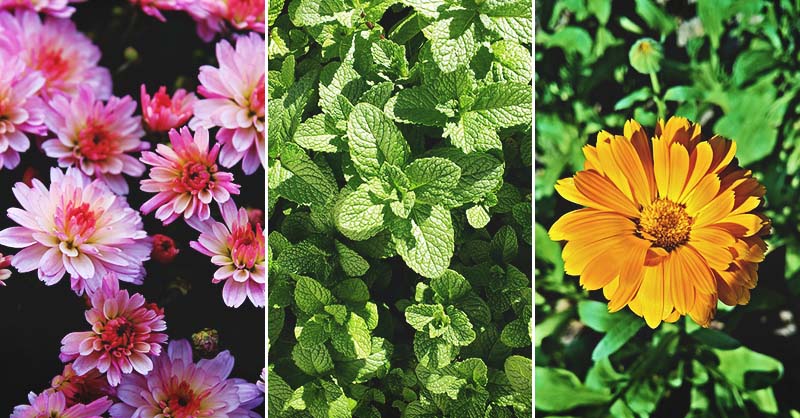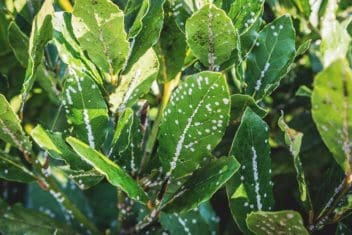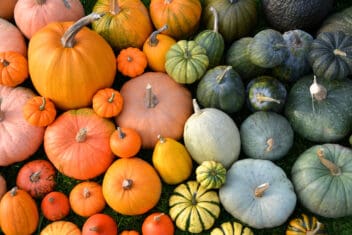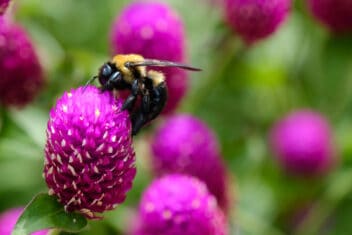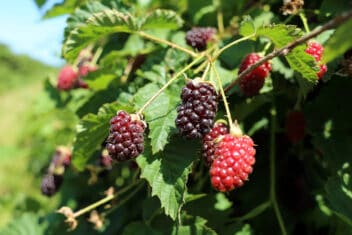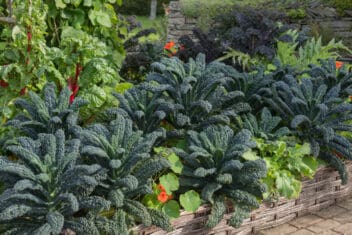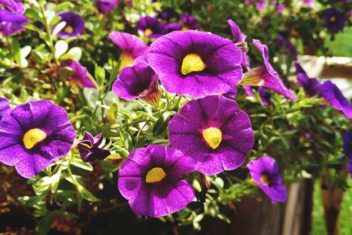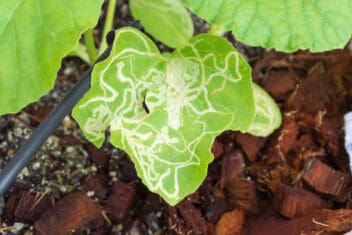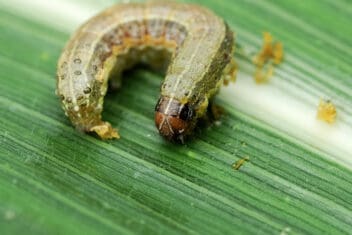Just the word spider makes my skin feel creepy crawly. While spiders might be necessary for the environment, that doesn’t mean we have to like them or want them around us. Instead of using chemicals to keep spiders out of your home, try growing one or more of these plants that keep spiders away.
Certain plants have been proven to repel spiders, both indoors and out. Most of these plants have a strong odor since aromatic plants are generally more effective at repelling insects. Strong doesn’t mean unpleasant, though. Some of the loveliest scents out there, like basil, mint, and lavender, all repel the creepy crawlies.
Let’s take a look at what plants keep away spiders the best, along with a few other tips for naturally repelling pests.
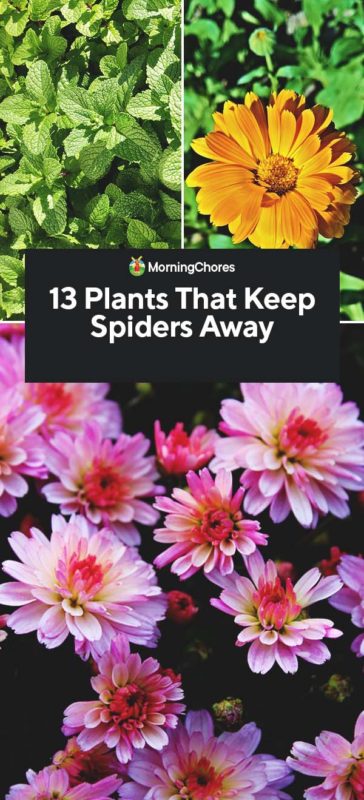
13 Plants That Keep Away Spiders
1. Basil
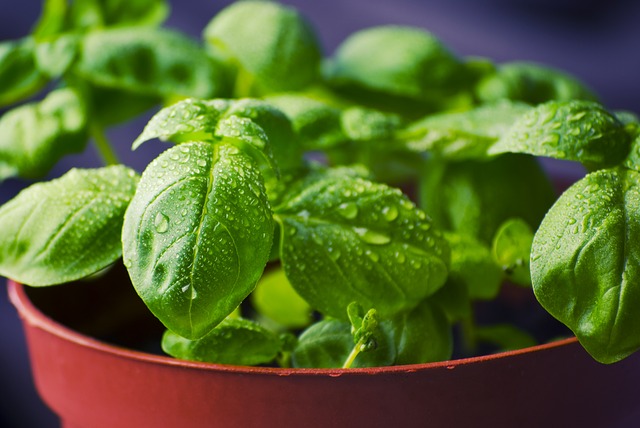
Any variety of basil can keep away spiders, so feel free to keep a few pots around your garden, kitchen, and patio. Not only does it work well against spiders due to its strong aromatic properties, but basil is also one of the most ubiquitous culinary herbs you can grow.
Growing basil isn’t tricky, but it does require plenty of sunlight and water. You can also use your fresh basil to create an insect repelling spray. Soak fresh basil leaves in vodka for a few weeks. Then, strain and spray your doors, kitchen windows, and anywhere that spiders like to frequent. It’s a cheap and straightforward insect repellent.
2. Lavender
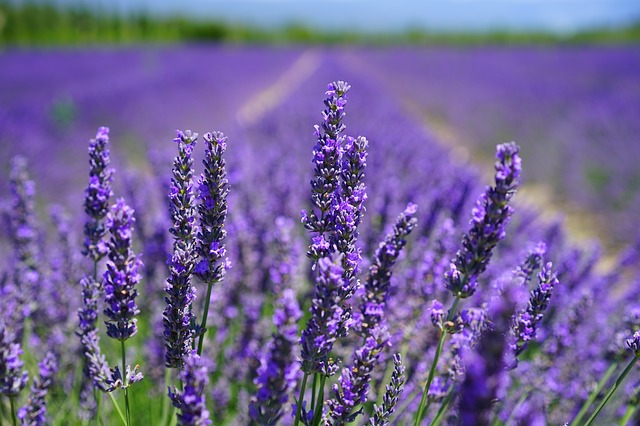
Everyone loves lavender – aside from spiders, that is. Spiders don’t like the smell of it, so keeping a pot of lavender in your house (in a sunny spot) or on your patio can help to deter them from visiting.
Growing lavender inside of your home can be a bit tricky because it does require plenty of sunlight and air, as well as frequent pruning.
Lavender is worth the effort; it’s one of the best medicinal herbs to grow. On top of that, the plants will spread their lovely scent in the air when the wind blows.
3. Mint
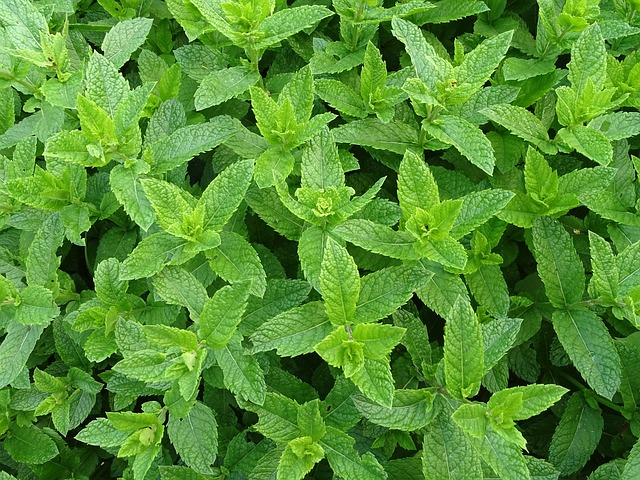
Mint can be an invasive plant, so make sure you keep it in a container. Otherwise, you’ll find that the mint plants take over your entire garden. All varieties of mint, such as spearmint and pennyroyal, help to ward off spiders.
You probably can guess why mint works so well – it’s aromatic. As soon as you get close to the plant, you can start to get whiffs of its scent. Put plants near your doors, windows, and patio to keep spiders out. Another option is to sprinkle leaves or sachets of dried mint around your home.
Some people swear that peppermint oil works just as good as mint plants. Either way, it’s the strong scent that keeps them away, so if you don’t have a mint plant yet, give the peppermint or spearmint essential oil a try to see if it works well for the spiders in your area before planting it.
4. Rosemary
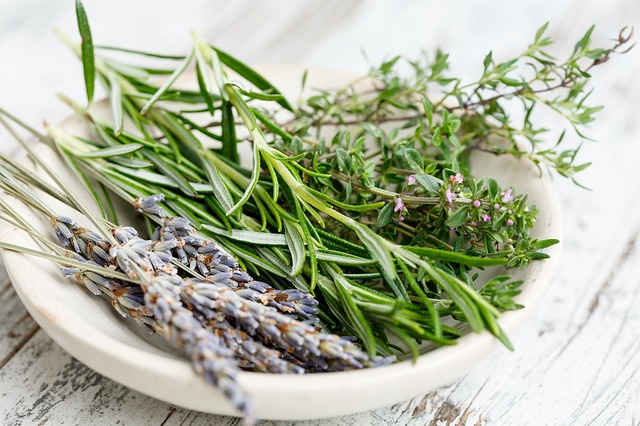
Spiders find rosemary offensive and leave it alone, which makes it an excellent deterrent. It’s considered a perennial in many climates, and it grows well in pots. Try keeping a pot of rosemary in areas that have spider issues.
Since you can grow rosemary in containers, it’s easy to put rosemary wherever you want, like next to your front door or on your kitchen counter in a mason jar.
5. Lemon Balm
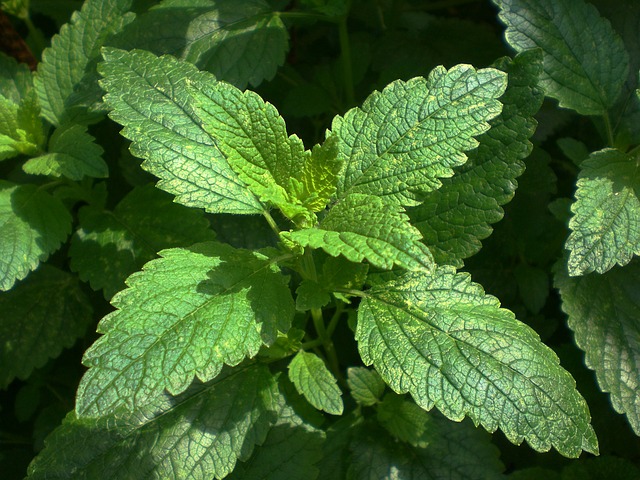
Lemon balm can be just as invasive as mint, so be cautious about where you plant it in your garden. It’s another strongly scented plant that helps you get rid of insects, including spiders. Fruit flies also dislike lemon balm. Keep it in your kitchen to deter all kinds of pests.
The good thing about lemon balm is that it’s easy to grow and hard to kill. With well-draining soil and sunlight, nearly anyone can grow it.
6. Citronella
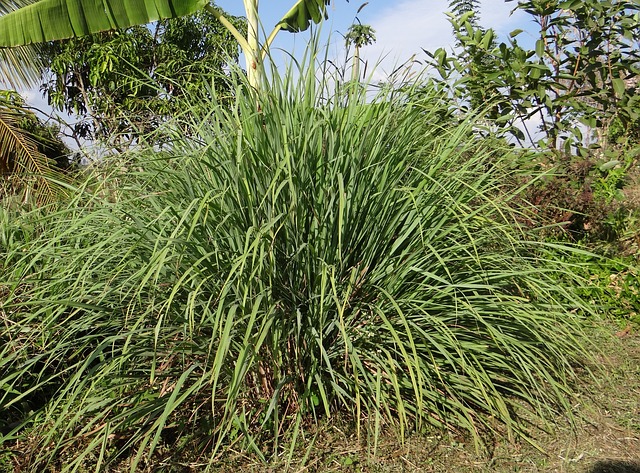
Citronella makes it on every list of spider deterring plants because it’s the source of citronella oil. Planting this around your home is a natural way to ward off spiders. Spiders hate the smell that is created by the acids in the grass.
Note that citronella doesn’t do well in winters, especially in chilly areas. If you live in a place that has cold winters, you should grow citronella in containers so that you can bring it indoors during the winter.
7. Eucalyptus
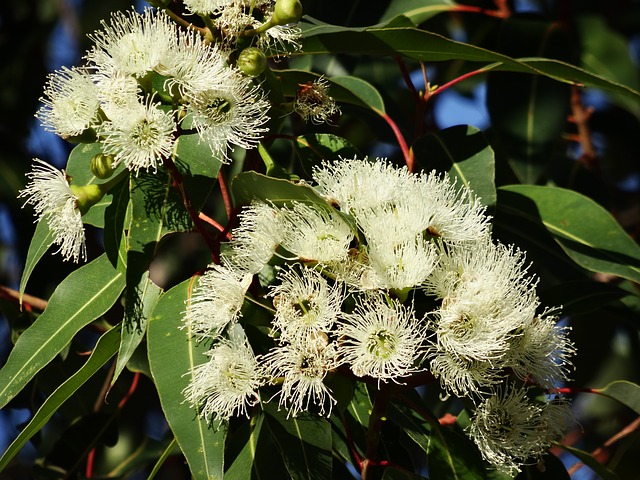
Eucalyptus leaves are so strongly scented, it’s no wonder that it’s a plant that keeps away spiders – as well as other bugs and insects. However, growing a full-grown eucalyptus tree in your garden isn’t always an option, depending on your location, so try a dwarf variety if that’s the case.
8. Chrysanthemums
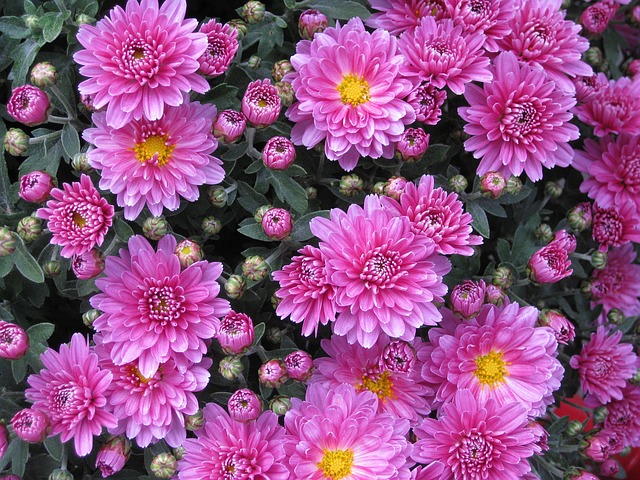
Commonly called “mums,” chrysanthemums have an insect repelling compound called pyrethrins, which is an ingredient in many natural pesticides. Mums need to be grown in a sunny location, but it can’t be too bright, or the plant will stop flowering.
The flowers, not the leaves, produce the repellent that you use against spiders. So, when you see a flower that dies back, remove the dead blossom to encourage more flowers to come out. That’s called deadheading.
9. Onions
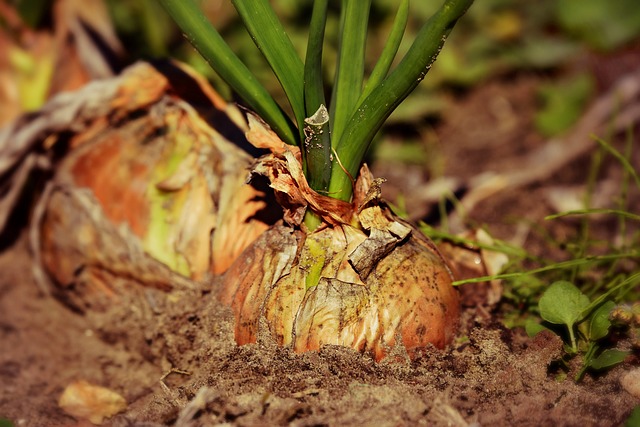
If you want to keep spiders out of your garden, try planting onions. Red spiders, often called spider mites, can be an issue in your house and garden plants. Mites feed off of plant’s nutrients, turning leaves yellow and stunting growth.
Adding onions to your garden can help to repel spiders, including spider mites, that want to call your home and garden its home.
10. Citrus Fruits
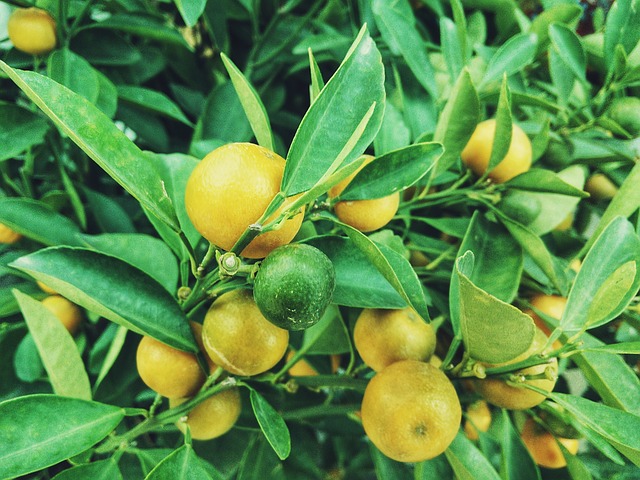
Even if you don’t live in a subtropical climate, you can still grow dwarf citrus trees, so long as you have a place to store them inside. Spiders don’t like the smell of citrus oil, which is in plants like lemons or oranges.
If you can’t grow citrus trees, some people swear that leaving lemon or orange peels around can help to deter spiders from visiting. Try rubbing lemon peels on the baseboards and near the windows that spiders frequent.
11. Marigold
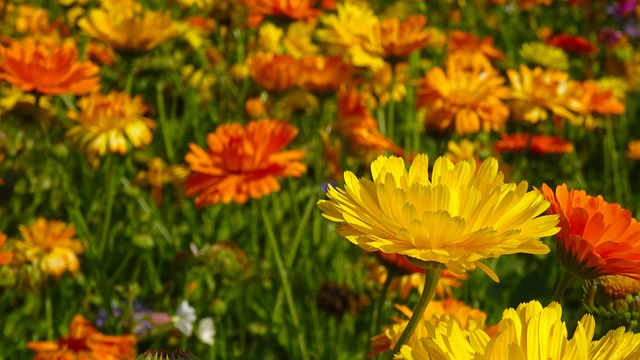
Marigolds have a unique scent that not only deters spiders, but it also keeps lice, mosquitoes, and other pests away from your garden. Plant some marigolds in your garden bed or a container garden to keep away spiders. As an added bonus, they add a splash of color to your garden or porch.
12. Dill
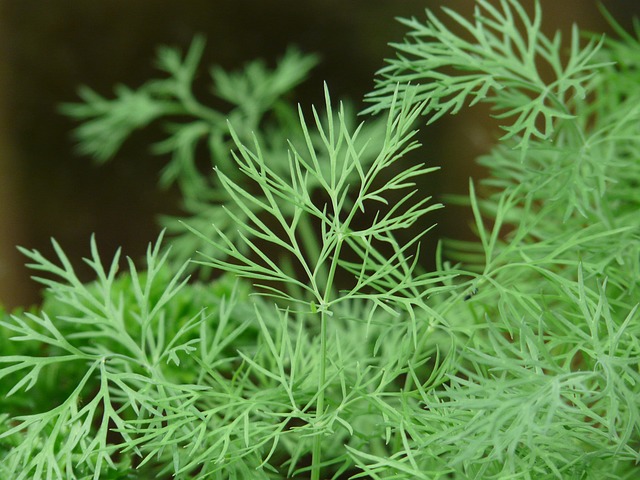
You might not think of dill when you think of aromatic herbs, but this member of the celery family has many uses in the culinary world. It also works to deter bugs, such as spiders, from the area where it’s planted.
13. Lemon Verbena

Lemon verbena is a perennial plant that can reach 6-9 feet tall with rough, glossy leaves that have a pointed shape. This plant emits an overpowering scent if the leaves are bruised or damaged.
This plant isn’t just a spider repellent; it also deters most bugs and pests because they cannot stand the smell. Plus, having lemon verbena on your property means you have the perfect flavoring for any fish or continental dish. Who doesn’t love plants that serve a dual purpose?
Due to the size, lemon verbena can be used as part of the landscaping or be placed near entrances to your home to help keep out pests.
Other Tips for Keeping Spiders Away
1. Clean with White Vinegar
Cleaning your home with white vinegar also serves as organic pest control for spiders. It contains acetic acid which has a sour taste and odor that spiders are sensitive to, so they stay away from it. You can spread the white vinegar around your home in areas that spider frequent, such as the kitchen and entrances to your home.
2. Spread Cedar Chips
Did you know that cedar chips and blocks can be placed outside and inside of your house to help get rid of spiders and other bugs? Plus, adding cedar gives you a woody scent around your space.
3. Use Diatomaceous Earth
Diatomaceous earth (DE) is made of fossilized remains. The white powder is inexpensive and effective and, best of all, it’s non-toxic, so you can use it if you have pets or children. Sprinkle DE around the areas where you notice bugs, such as around the foundation of your home.
4. Keep Landscaping Clean
Keep the exterior of your home free of debris. Make sure you pick up leaves, grass clippings, wood piles, and other hideouts for spiders. If you keep the spiders away in the first place, then you shouldn’t have a huge issue inside of your home
Bottom Line
Spiders can be troublesome, especially if you have children at home that could be bitten by them. Planting a few of these plants around your home is an excellent first step towards deterring spiders from taking residence on your property.

